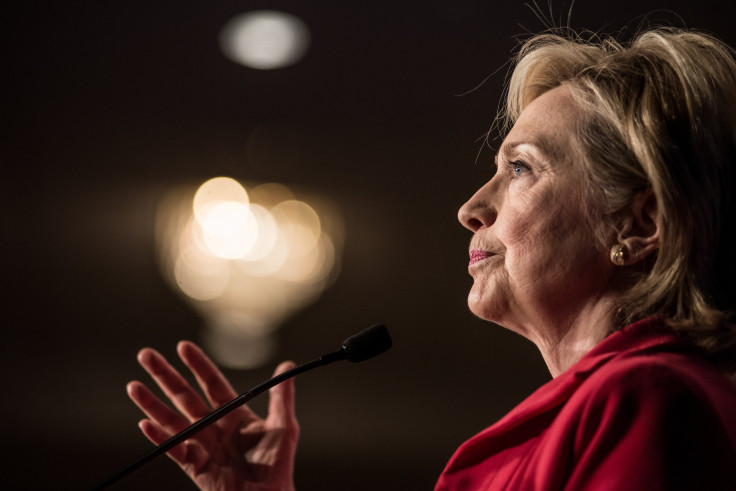Hillary Clinton Election 2016: Capital Gains Tax And Long-Term Growth Topics At NYU Speech By Presidential Candidate

Hillary Clinton chose a speech Friday at New York University's Stern Business School as the opportunity to detail the economic plan she would put in place if elected president. The speech elaborated on a plan she had outlined July 13.
Clinton said she would encourage long-term growth by discouraging short-term investments and cracking down on "hit-and-run activists" who were seeking immediate payouts from companies. "We need a new generation of committed, long-term investors to provide a counter-weight to the hit-and-run activists" she said.
The former U.S. secretary of state advocated for higher capital gains taxes for people who hold stocks for less than a few years. She wants to take on what she calls "quarterly capitalism" which values quarterly returns for shareholders over long-term investment. Clinton said she believed that kind of short-term thinking in the markets was a large part of what was slowing the nation's economy.
The content of the speech seemed targeted at moderate voters. Though Clinton aides said she wanted to start a broader conversation about corporate culture, this address was more directly concerned with the capital gains tax that many investors already think is a good idea.
Hillary wants to change how we think about business. pic.twitter.com/NI35wR5K8z
— Hillary Clinton (@HillaryClinton) July 24, 2015Clinton did criticize the exorbitant paychecks of corporate executives, noting that they sometimes earn up to 300 times what their employees do. "That just doesn't make sense" said Clinton. She also said the issue of executive pay is intrinsically tied to the problem of short-term investments because "stock-heavy pay packages have created a perverse incentive."
The speech called for a raise in the federal minimum wage and the establishment of programs for middle-class corporate employees to share in corporate profits. "Corporate profits are at near-record highs, but companies are too often not choosing to reinvest those funds in innovation or their workforce," a Clinton aide told CNN Thursday.
Many observers thought her economic plan could unite progressives and moderates within the Democratic Party because it toed a subtle line and did not suggest anything too radical. “It’s a complete win-win,” said Jonathan Cowan, a former official in President Bill Clinton's administration, in conversation with Politico. “Her political imperative is to unite the growth wing and the fairness wing of the party, so she has the best shot at winning a general election."
© Copyright IBTimes 2025. All rights reserved.






















